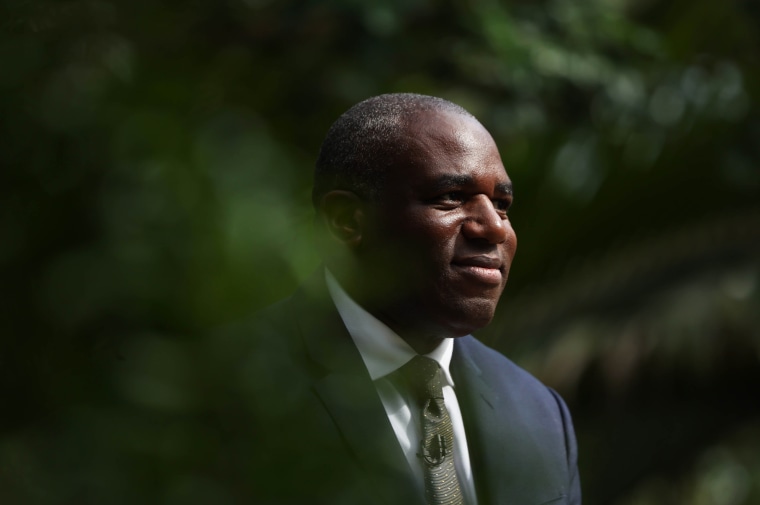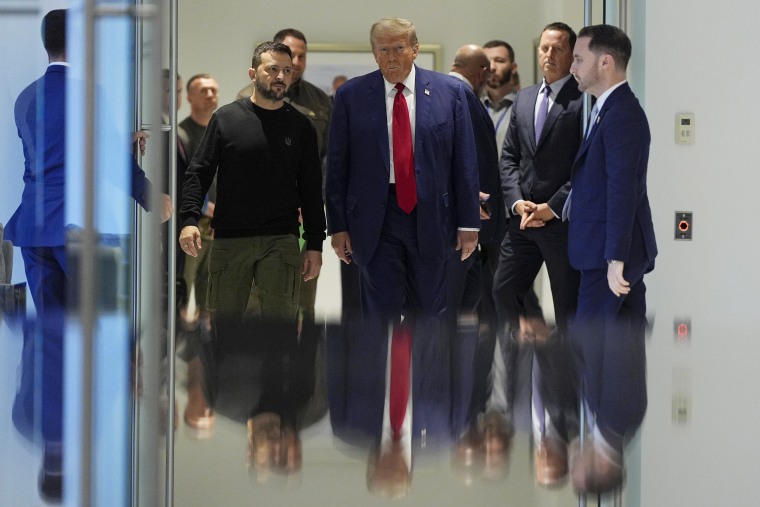Donald Trump's presidential victory means some U.S. allies may have to reckon with prior scathing remarks as their countries prepare to build diplomatic ties with a president-elect whose return they may not have anticipated.
“The most destructive president in history,” Australian Ambassador to the U.S. Kevin Rudd said of Trump in 2020, who “drags America and democracy through the mud.”
“A woman-hating, neo-Nazi-sympathizing sociopath” and a “profound threat to the international order,” David Lammy, the U.K.'s current foreign secretary, said in 2018.
“A political pyromaniac who must be put before a criminal court,” Jean Asselborn, then-foreign minister for Luxembourg, said of Trump after the Jan. 6, 2021, Capitol riot.
"Trump has ruined it all," Croatian President Zoran Milanović said, also in 2021. "He incite[s] hate, he is a rabble-rouser and that’s it."
Following Trump’s election victory, at least two of these U.S. allies, the U.K. and Australia, have had to dial back some of their previous attacks.
Rudd deleted his posts after Trump's win, “out of respect for the office of President of the United States,” an Australian government statement said, and to “eliminate the possibility of such comments being misconstrued as reflecting his positions as Ambassador and, by extension, the views of the Australian Government.”
Trump responded to Rudd’s comments by calling him “nasty” and saying he “won’t be there long” as Australian ambassador to the U.S.

Lammy pivoted from scathing critic to polite well-wisher, showing that diplomacy sometimes means shaking hands with those you once pointed fingers at.
Lammy, who made his comments about Trump being “a woman-hating, neo-Nazi-sympathizing sociopath” in Time magazine in 2018 when he was a backbench minister of Parliament, had also protested against the then-government’s “capitulation to this tyrant in a toupee.”
By Wednesday, as Trump claimed his decisive electoral victory, Lammy's tone as foreign secretary had shifted considerably, as he sent his congratulations and underlined the U.K.'s cherished special friendship with the U.S.
Relations between Britain’s ruling center-left Labour Party and Trump have been antagonistic in the lead-up to the election, with Trump accusing the British of election interference.
In October, Trump’s team asked the Federal Election Commission to investigate after a senior Labour figure posted a rallying cry for current and former staffers to travel to battleground states and campaign for Harris.
In the first phone call between the pair after the U.S. election, U.K. Prime Minister Keir Starmer offered his “hearty congratulations” to Trump after his “historic victory,” a spokeswoman for the prime minister's office said in a statement Wednesday.
Charles Parton, who served as a British diplomat for almost four decades, said that “the Labour Party has got some grounds to make up” after a perception that Starmer's party had favored the Democrats.
On top of Lammy’s remarks, Parton believes that Starmer's “somewhat effusive statement” is an attempt to “try and make up lost ground.”
Nigel Farage, the leader of the far-right Reform UK party, offered to help bridge Labour's awkward relations with Trump, whom he considers a personal friend with whom he is ideologically aligned, an offer the Labour Party declined.
Ukrainian President Volodymyr Zelenskyy posted on X that he had an “excellent call” with Trump on Wednesday, despite threats from Trump to end the war with Russia quickly, potentially requiring uncomfortable concessions from Ukraine.
“I praised his family and team for their great work,” Zelenskyy wrote, adding, “We agreed to maintain close dialogue and advance our cooperation.”
On the tone of the statement, Parton said, “I wouldn’t normally expect in congratulation messages like this for people to refer to the family, but Trump has made such a big thing about his family.”
“If you look at Trump’s character, it would appear that he probably quite likes this sort of approach,” Parton said.
“There’s no harm in trying to flatter or get into his good books by pressing the right buttons. So that’s what they’ve done,” he said. “Unusual? Yes. Sensible? Probably.”

Among those first to congratulate Trump was Saudi Crown Prince Mohammed bin Salman.
During the call, the crown prince "expressed the Kingdom’s aspiration to strengthen the historical and strategic relations between the two countries," according to Saudi state news agency SPA.
Israeli Prime Minister Benjamin Netanyahu's office said he had a "warm and hearty" conversation with Trump, boasting that the phone call was among Trump's first. Netanyahu also posted on X, hailing Trump's "huge victory" as "history’s greatest comeback."
Viktor Orbán, Hungary’s far-right prime minister who publicly endorsed Trump’s re-election bid, unlike other European leaders, wrote on X that the result was a “much needed victory for the World.”
Mark Rutte, NATO secretary-general, wrote on X that he was looking forward to “working with him again to advance peace through strength through #NATO.”
Despite the controversies, most world leaders were always going to congratulate Trump on his presidential win, as many did early Wednesday before he was even officially declared the victor.